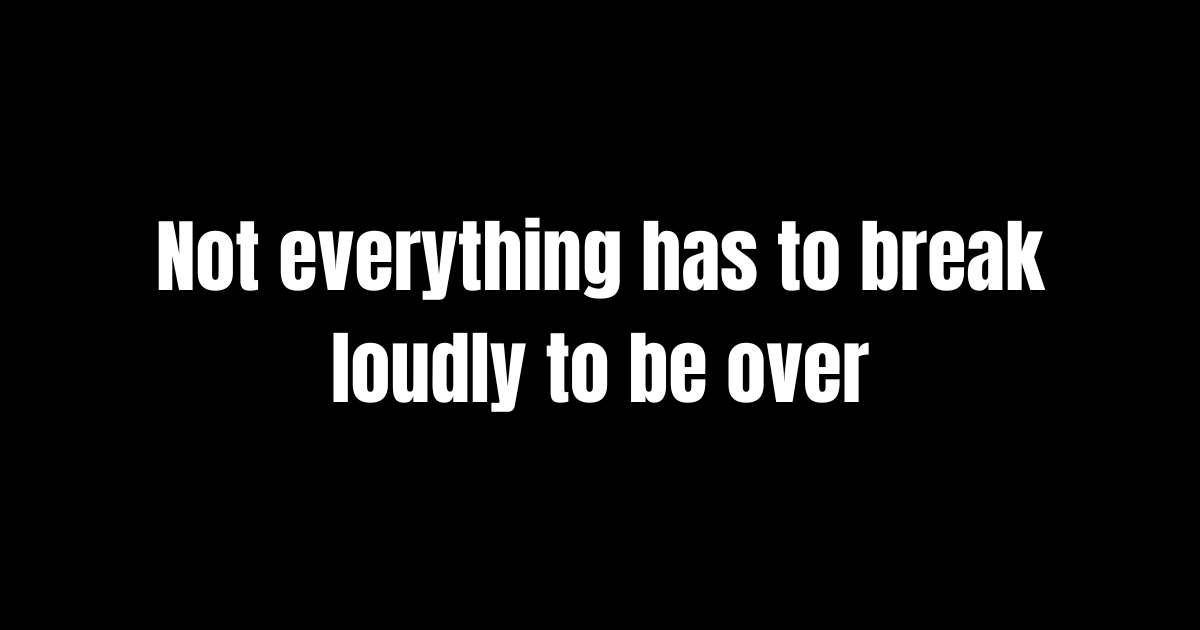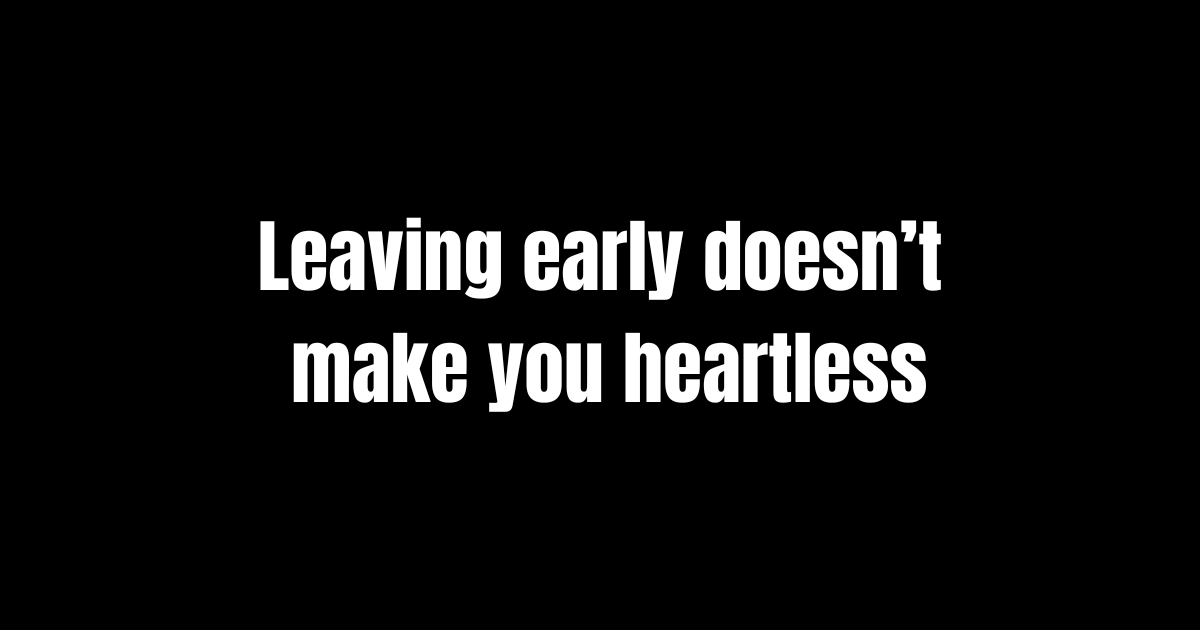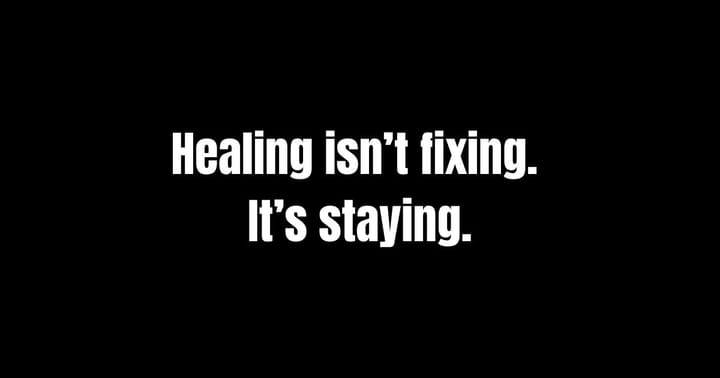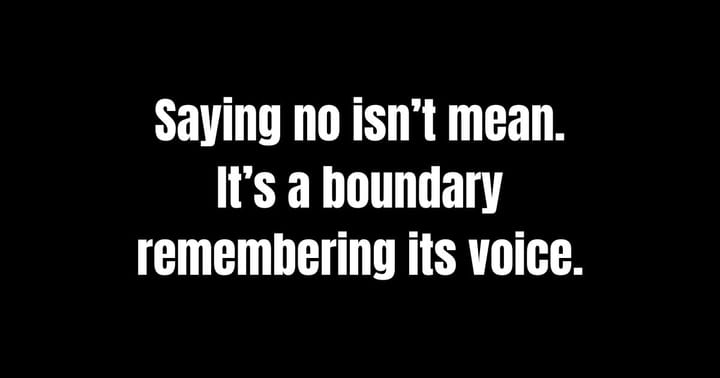What If It Didn’t Have to End Loudly
Not every ending needs to be explosive. Sometimes you leave softly, without a scene, and wonder if it still counts. This post is for the quiet exits—the ones that didn’t break dramatically, but still broke something inside you.

What If It Didn’t Have to End Loudly
(And Why Quiet Endings Are Still Complete)
We expect endings to be dramatic.
A slammed door.
A screaming match.
Tears in a driveway.
A final message that says everything you never said before.
We expect a visible fracture to make it feel real.
A collapse big enough that no one could question why you walked away.
But some endings don’t look like that.
Some of them arrive without warning.
Not because something snapped but because something settled.
And suddenly, you knew: this chapter is finished.
Even if it still looked intact on the outside.
Not All Endings Are Meant to Be Witnessed
You didn’t make an announcement.
You didn’t burn the bridge.
You just ... stopped.
Stopped replying so quickly.
Stopped laughing on cue.
Stopped showing up in the way they’d come to expect.
Maybe you drifted slowly.
Maybe it was one decision, quiet and final.
But the departure didn’t come with an explanation.
It came with a knowing.
And that knowing was enough.
Even if no one else saw it happen.
The Absence of Drama Doesn’t Mean the Absence of Pain
You still felt it.
The sadness.
The guilt.
The ache of letting something dissolve without giving it a final conversation to hold onto.
Maybe part of you wanted to say more.
To tie it up neatly.
To be understood.
But clarity doesn’t always come with words.
And understanding doesn’t always arrive on time.
Sometimes, the only person who will ever fully get why you left
is you.
And that has to be enough.
There’s Power in Walking Away Before It Breaks
We’re taught to wait until there’s no other choice.
To stay until it hurts too much to keep going.
To wait for betrayal, disrepair, something dramatic enough to justify the exit.
But what if you don’t need the fire to leave the room?
What if the slow erosion of joy,
the subtle shift in tone,
the growing dissonance in your body were all the permission you needed?
Leaving quietly doesn’t make you indecisive.
It means you listened earlier.
And that’s not weakness.
It’s emotional fluency.
Silence Can Be a Complete Sentence
You don’t need a closing argument.
You don’t need to draft a paragraph to prove your rightness.
You don’t need a reply that confirms what you felt.
Not everything needs to be processed aloud.
Not every goodbye needs to be co-signed.
There’s a particular grief in realising you won’t get closure from them.
But there’s also relief in knowing you gave it to yourself.
Quiet Endings Are Harder to Mourn
Because no one else marks them with you.
No one sends a message.
No one checks in with casseroles and kind words.
There was no explosion.
Just a pause that stretched into absence.
Just a knowing that stayed with you long after the moment passed.
And yet the pain is real.
Sometimes sharper.
Because it lives in the space between what could have been said and what needed to stay unsaid for your own peace.
Letting Go Doesn’t Require Loudness. Just Honesty
Maybe the ending was in a glance.
Maybe it was the moment they talked over you again.
Maybe it was a growing awareness that you were editing yourself to stay digestible.
No drama.
Just truth.
You don’t need to make yourself uncomfortable
just to make someone else comfortable with your goodbye.
You don’t need to linger in something that’s already ended internally
just because it looks presentable on the outside.
You don’t need to wait for collapse to walk away with clarity.
The Most Honest Goodbyes Are Often the Softest
You left when you still had kindness.
You exited without spite.
You honoured the ending by not trying to force it into something cinematic.
There’s dignity in the quiet no one hears.
There’s wisdom in knowing when enough is enough, even if no one else sees the moment you decided to go.
Maybe it didn’t end loudly.
But it ended cleanly.
And that’s still closure.
Even if it was just for you.
Watch Next:
Notes to Self:
Read Next:




